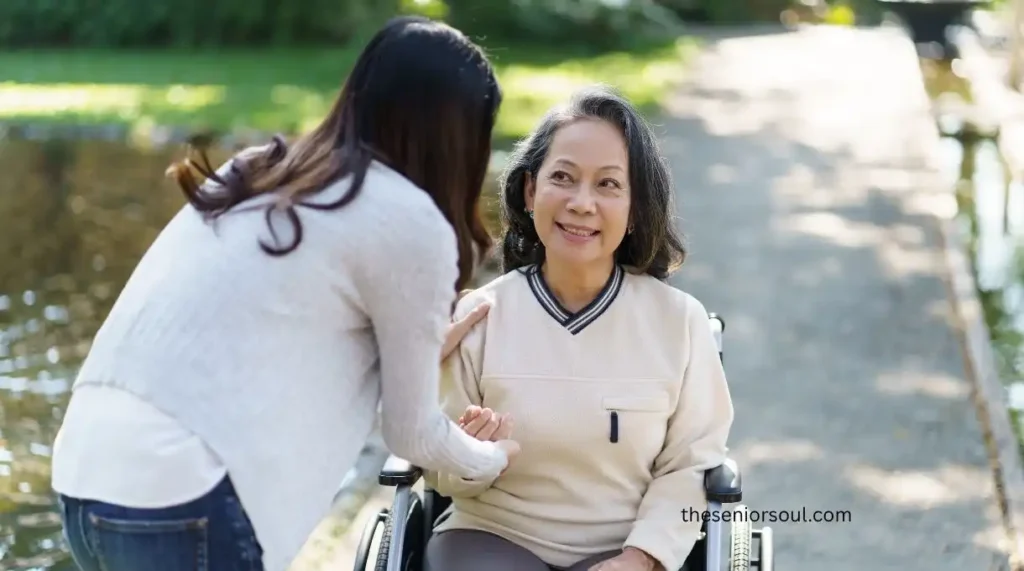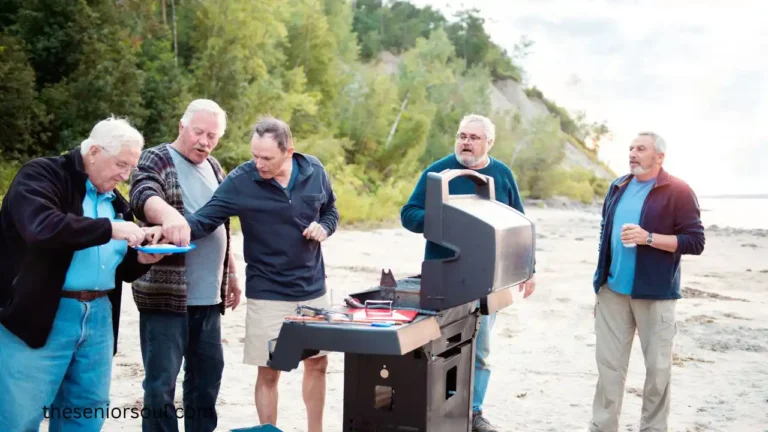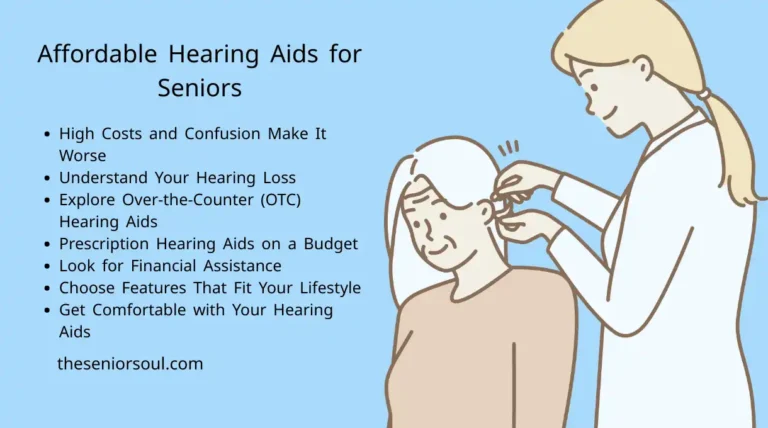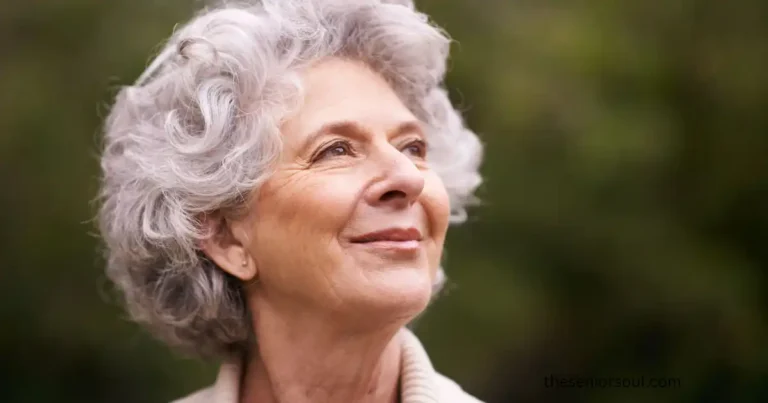Why Do Older People Crave Attention? Hidden Emotional Needs

As we age, many of us notice a shift in our emotional needs and desires. One of the most common observations is that older people often crave attention, whether from family, friends, or even strangers. This craving for attention can be confusing for younger generations who may not fully understand why this happens.
In this article, I will explain why older people crave attention, how it affects their mental well-being, and what you can do to help. By the end, you’ll gain insight into the deeper reasons behind this behavior and how to address it in a positive and constructive way.
Table of Contents
Why Do Older People Crave Attention?
The first question you might be asking yourself is why older people seem to seek more attention as they age. For many, the urge to be noticed, appreciated, and valued becomes more apparent in the later stages of life. There are several psychological, emotional, and social reasons behind this. One key factor is loneliness.
Research by the National Institute on Aging shows that loneliness is a significant issue among older adults. Nearly 43% of seniors report feeling lonely, and this isolation can be a major contributor to their need for attention. With the loss of family members, friends, and their social network, older people may feel disconnected and yearn for human interaction. The loss of social bonds often leads to an increased need for attention from those around them.
Another problem is the physical decline that comes with aging. As the body ages, it can become more challenging to perform daily tasks, and older people may rely more on others for help. This dependency can create a sense of vulnerability, which in turn increases their desire for validation and attention from others. It’s not about selfishness or ego; it’s often a deeper emotional need to feel cared for and supported.
How Does Craving Attention Affect Older People?
When older people crave attention, it’s not just about wanting to be the center of attention. The situation becomes more complicated when this need for attention is unmet. This unmet need can lead to emotional distress, including feelings of anxiety, depression, and a decreased sense of self-worth. The consequences of not addressing these emotional needs can be far-reaching, affecting both mental and physical health.
A study conducted by the American Psychological Association reveals that social isolation in seniors increases the risk of cognitive decline and physical health issues such as heart disease, obesity, and high blood pressure. The emotional toll of loneliness can exacerbate these conditions, leading to a vicious cycle where the person becomes more isolated, and their health worsens.
For instance, if a senior feels neglected and unimportant, it may lead to feelings of sadness or hopelessness. They might start to withdraw even further, which then reduces the likelihood of receiving attention and care. This creates a feedback loop that is difficult to break without intervention.
How to Address the Craving for Attention in Older People
Understanding why older people crave attention is the first step in addressing the issue. The next step is to find practical solutions to meet their emotional and psychological needs. Here are some ways you can help:
Spend Quality Time Together
One of the simplest and most effective ways to address the craving for attention is by spending quality time with older people. This could mean sitting down for a conversation, playing a board game, or even just sharing a meal together. According to a study published in The Journal of Aging & Social Policy, seniors who have regular social interactions tend to experience better mental health and an improved sense of well-being.
By giving your time and attention, you not only provide emotional support but also create an opportunity for meaningful connections. This can reduce feelings of loneliness and improve their overall mental health.
Encourage Involvement in Social Activities
Sometimes, older people crave attention because they feel left out of social activities. Encouraging them to join community groups, attend local events, or participate in hobbies they enjoy can help them feel more connected and valued.
Social activities provide an opportunity for older adults to interact with peers, develop new friendships, and strengthen existing relationships. Research shows that older adults who engage in regular social activities experience better cognitive function, higher self-esteem, and greater life satisfaction. Consider suggesting local senior clubs, volunteering opportunities, or even digital spaces where they can interact with others online.
Validate Their Feelings and Experiences
Often, older people crave attention because they feel that their life experiences and opinions are no longer valued. Validation is essential for maintaining their emotional well-being. Take the time to listen to their stories and acknowledge their wisdom. This simple act of validation can have a profound impact on their mental state.
A study published in The Gerontologist highlighted that older adults who feel respected and listened to are more likely to experience positive mental health outcomes, such as reduced anxiety and depression. In everyday life, this could mean asking about their experiences, respecting their opinions, and expressing appreciation for their contributions.
Provide Physical and Emotional Care
As people age, they often face physical challenges that require assistance. Older adults may crave attention because they feel helpless or need support with daily tasks. By offering physical assistance and emotional care, you can help alleviate some of the burden that comes with aging.
Simple acts of care, like helping with housework, running errands, or attending medical appointments together, can provide the attention and support older people need attention. Emotional support, such as offering encouragement or simply being present, also plays a crucial role in improving their overall quality of life.
Offer Opportunities for Purpose and Meaning
Another reason older people crave attention is a lack of purpose or meaning in their lives. As people retire or face other significant life changes, they may struggle to find direction. Helping them discover new passions, volunteer opportunities, or hobbies can give them a sense of purpose.
Research shows that having a sense of purpose is associated with better mental health outcomes in older adults. A study in JAMA Psychiatry found that seniors who have a clear sense of purpose experience lower rates of depression and better cognitive function. By encouraging them to engage in activities that align with their interests, you can help them regain a sense of meaning and reduce their need for constant attention.

How to Apply These Solutions in Daily Life
In your daily life, you can take small steps to address the emotional needs of older people around you. If you have an elderly family member or friend, try to incorporate the following into your routine:
- Set aside dedicated time to visit or call them regularly. Even a short conversation can go a long way.
- Encourage them to share their thoughts and feelings, and validate their experiences.
- Involve them in family events, outings, or even virtual gatherings if they are unable to attend in person.
- Help them navigate new technology to stay connected with others, such as setting up social media accounts or teaching them how to video chat.
- Offer physical assistance when needed, but also respect their independence as much as possible.
By making these small changes, you can help older individuals feel valued, heard, and supported, reducing the need for excessive attention-seeking behavior.
Understanding and Supporting Older Adults’ Emotional Needs
Older people crave attention for various reasons, including loneliness, physical decline, and emotional needs. It’s essential to understand these underlying causes in order to provide appropriate support. By spending quality time together, encouraging social involvement, validating their experiences, and offering care, you can help older adults feel appreciated and loved.
Remember, the need for attention isn’t just about wanting to be the center of attention. It’s often a cry for connection, validation, and care. As you apply these solutions in your daily life, you’ll not only make a positive difference in the lives of older adults but also strengthen the bond between generations.
Understanding why older people crave attention can help bridge the gap between age groups and ensure that we all maintain meaningful relationships throughout our lives.
RELATED POSTS
Healing Quotes for Seniors a Daily Necessity
Easy Dinner Ideas for Seniors to fit busy days
Is Joining Walking Groups for Seniors the Key to Overcoming Mood and Health
Frequently Asked Questions (FAQs) about “Why do older people crave attention”
Why do older people crave attention?
Older people crave attention due to feelings of loneliness, physical decline, and the need for emotional connection. Aging often leads to social isolation, which heightens the desire for validation and companionship from others.
How does aging affect social needs?
Aging can lead to isolation, reducing social interactions. As friends and family members pass or become distant, older people crave attention and emotional connections to maintain mental and emotional well-being.
Is craving attention a sign of mental health issues in older adults?
While craving attention can stem from normal aging, it may also signal loneliness or anxiety. If the need for attention becomes extreme, it might be linked to underlying mental health concerns such as depression or cognitive decline.
What are the signs that an elderly person craves attention?
An elderly person may seek constant validation, initiate conversations more frequently, or display anxious behaviors when not receiving attention. They might become upset or withdrawn when ignored.
How can family members help those older people crave attention?
Family members can spend quality time, engage in meaningful conversations, validate their feelings, and encourage participation in social activities to reduce loneliness and help meet their emotional needs.
Do older people experience more loneliness than younger people?
Yes, older adults often experience higher levels of loneliness due to factors like limited social networks, mobility challenges, and the loss of close relationships, which contributes to a greater need for attention.
What emotional needs increase as people age?
As people age, emotional needs often shift towards seeking validation, companionship, and a sense of purpose. They may also require reassurance and a stronger connection to loved ones to combat loneliness and isolation.
Can aging lead to dependence on others for emotional support?
Aging can increase emotional dependence, especially if physical limitations or health issues prevent seniors from being independent. The emotional connection with others becomes essential for their well-being.
Why is attention important for elderly mental health?
Attention helps older individuals feel valued and connected, which in turn boosts their self-esteem and mental health. Lack of attention can contribute to feelings of neglect, leading to depression and anxiety.
How does society perceive older adults seeking attention?
Society often misunderstands the emotional needs of older adults. Seeking attention is sometimes viewed negatively, but it’s an essential way for them to combat loneliness and maintain a sense of belonging and purpose.






